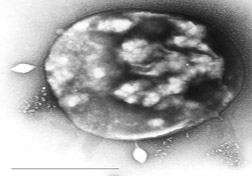HCG during pregnancy: blood test, norm and decoding.
Content
Blood test for chorionic gonadotropin (hCG) during pregnancy

Chorionic gonadotropin of man — hormone, normally synthesized only during pregnancy with fuzzy shells, and then the placenta. The level of hCG in the blood of a woman begins to grow from the moment of implantation of the embryo in the uterine cavity.
Functions of chorionic gonadotropin:
- Stimulation of the synthesis of progesterone and estrogen in the ovaries;
- maintaining and maintaining pregnancy;
- together with prolactin blocks menstrual cycle.
HCG levels at different times of pregnancy can serve as diagnostic criteria for one or another disease or state. The direction for the study gives a gynecologist.
Interpretation of the results of the analysis on hCG during pregnancy
From the first day of pregnancy, the level of hCG in the blood increases, reaching a peak by the 11-12th week. After this period, it gradually decreases, reaching a minimum by the time of birth. Units — U / l or honey / ml.
CGH rate during pregnancy:
- For a period of 4 weeks from conception — 10,000-30000 honey / ml;
- 11-12 weeks — 20000-225000 honey / ml;
- 17-18 weeks — 8000-57000 honey / ml;
- 20-28 weeks — 1600-49000 honey / ml.
Increasing the level of hCG during pregnancy above the reference values is observed in the following pathologies and states:
- Anomalies of fetal development, chromosomal diseases (Down syndrome, Edwards);
- diabetes of mother;
- expressed early toxicosis;
- Multiple pregnancy.
The reception of hormonal drugs (Gestagennes) stimulates the synthesis of hCG.
Reducing the level of hCG below normal — Sign of the following pathologies:
- intrauterine fetal death in late dates;
- undeveloping pregnancy in early time;
- ectopic pregnancy;
- threatening spontaneous abortion;
- Fetoplacentar insufficiency;
- Transferred pregnancy.









